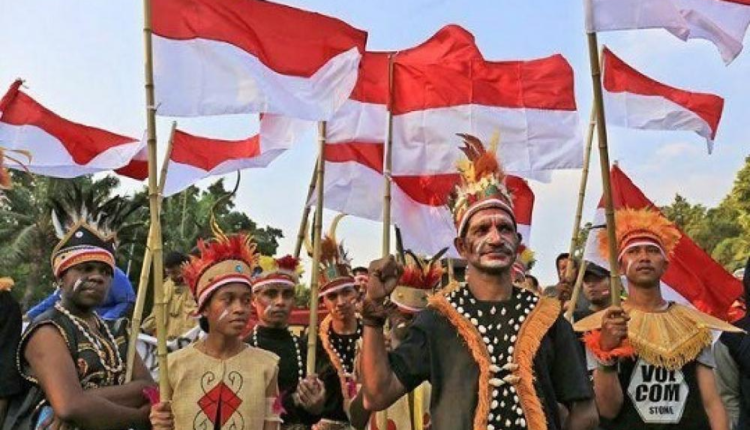Supporting Collaboration of State Law and Customary Law for the Sustainability of Papuan Development
By: Joshua Mandacan*
Papua is one of the regions in Indonesia that is rich in cultural diversity and has strong traditional values. This uniqueness not only enriches national culture but also creates challenges in development, especially regarding the integration of state law with customary law. Given the importance of customary law in the lives of the Papuan people, collaborative efforts between these two legal systems are key to achieving sustainable and inclusive development.
Customary law interests often conflict with state law which has a more formal and systematic view in managing resources. State law aims to ensure that development proceeds in accordance with national regulations and brings benefits to all citizens. In this context, it is very important to find a harmonious meeting point between the two legal systems.
The Vice President of the Republic of Indonesia, KH Ma’ruf Amin, also emphasized that the government continues to involve indigenous communities, especially tribal chiefs, in Papua’s development plans. This step was taken by the government to avoid policies that have a negative impact on the livelihoods of indigenous Papuan people. With the active involvement of indigenous communities, development policies can be more in line with local needs and aspirations, thereby creating quality and equitable economic growth throughout the Papua region.
Collaboration between state law and customary law can be realized through several strategic approaches. In this case, the government has involved traditional leaders and the community in the decision-making process related to development. This will ensure that the resulting policies not only comply with state regulations but also respect traditional values.
The chairman of the DPR RI, Puan Maharani, said that the development of Papua has been prioritized by the Indonesian government, which includes the development of infrastructure such as roads, schools, airports, ports, and even distribution of electricity. Puan emphasized that Papua’s development has also been able to increase the Human Development Index and reduce poverty levels significantly. Apart from that, the DPR also plays an important role in strengthening political institutions, democracy and the implementation of Special Autonomy for Papua, including the formation of the Papuan People’s Assembly (MRP) as an institution representing the Papuan people.
Sustainable development in Papua aims to improve people’s quality of life by providing better access to education, health services, and basic infrastructure such as clean water and electricity. With this improvement, the Papuan people can reduce poverty levels and improve their welfare.
Apart from that, Law Number 21 of 2001 concerning Special Autonomy for Papua has actually provided space for the recognition of customary law. Its implementation in the field has been effective in protecting the rights of indigenous peoples. In this case, a deep understanding of the cultural values and customs of the local community is key.
Through a sustainable development approach, economic sectors such as ecotourism, organic farming and handicrafts can be developed. This not only creates new jobs but also supports the local economy by exploiting Papua’s natural and cultural potential.
This approach not only benefits indigenous communities but also the success of the development project itself. Respect for customary law can increase community support for development projects, reduce the risk of conflict, and create a more harmonious relationship between the community and the government. This will ultimately speed up the development process and ensure that the results can be enjoyed by all levels of society.
In practice, there are many successful examples of collaboration between state law and customary law that can be used as a reference. For example, in customary forest management, several regions in Papua have succeeded in implementing sustainable management principles that combine local wisdom with national regulations. This shows that good collaboration between these two legal systems is not only possible but also provides real benefits for the environment and society.
Even though there are challenges, this collaboration can actually be implemented consistently in the field. Strong support, as well as active community involvement, is very important to ensure that this collaboration runs according to the expected goals.
The government, indigenous communities and all parties involved need to commit to continuing to strengthen this collaboration. Good collaboration will not only bring benefits to indigenous communities but also to the development of Papua as a whole. In this context, the government needs to demonstrate its good intentions through concrete actions that support the recognition and protection of the rights of indigenous peoples. Meanwhile, indigenous communities also need to be proactive in participating in the development process, while maintaining their cultural values and heritage.
Papua has great potential to develop harmoniously and sustainably. This is a golden opportunity to show that development does not have to conflict with local customs and culture, but can go hand in hand to achieve shared prosperity. Papua’s development will continue to be a national priority that prioritizes fulfilling the rights and dignity of Indigenous Papuans for inclusive prosperity. This collaboration is the path to a better future for Papua, where everyone feels valued and has a role in development.
*The author is a law student from Papua
